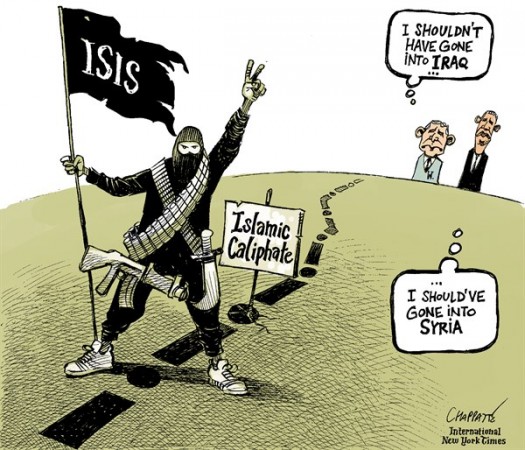 Arab leaders bemoaned what they called a lack of strategy and weapons in the fight against jihadists like Islamic State (IS) at a security conference attended by Western leaders in Munich on Sunday.
Arab leaders bemoaned what they called a lack of strategy and weapons in the fight against jihadists like Islamic State (IS) at a security conference attended by Western leaders in Munich on Sunday.
IS fighters have brought large areas in Syria and Iraq under their control, using extreme violence against civilians, journalists and Arab and Kurdish soldiers.
U.S.-led air strikes and arms deliveries from Western countries to Kurdish fighters have helped contain IS expansion into Kurdish territory in northern Iraq. But on the ground, IS – known as Daesh in Arabic – uses heavy weapons captured from a weakened Iraqi army, leaving local fighters painfully exposed.
“I don’t see that there is a clear strategy how to deal with (IS),” Palestinian Foreign Minister Riad al-Malki said. “How to face it, how to contain it, control it, defeat it and eliminate it. I don’t see it… Unless the air strikes is a strategy. That’s not a strategy.”
Last month, the head of NATO said air strikes alone would not be enough to defeat IS and greater Western help in building up Iraqi security forces could also play a role.
Qatar also criticized current efforts against IS, especially in Iraq where many Sunnis have felt disenfranchised by the Shi’ite-dominated leadership in Baghdad.
“If we want those people (Sunnis) to fight for themselves, to clean Iraq from any terrorists, we have to not only issue a program but to implement this program tangibly,” Qatar’s Foreign Minister Khaled al-Attiyah said in Munich.
“We still need to have a strategy in Iraq from our allies. There is no strategy, I’ll be very frank on this.”
Saudi Arabia and Jordan have taken part in air strikes against IS. Other countries like Egypt say the international community is not helping enough in their fight against other jihadist groups such as Ansar Beyt al-Maqdis in the Sinai peninsula, bordering Israel.
“We need more weapons, the quality, the sophistication of the weapons, the technology so that we can track and be able to infiltrate these organizations,” Egypt’s Foreign Minister Sameh Shoukry told Reuters on the sidelines of the Munich conference.
Echoing Egypt’s calls for a more comprehensive strategy, Afghan President Ashraf Ghani urged leaders in Munich to act on militants operating from his country, adding that this threat should not be treated in isolation from IS and other groups.
Reuters

Leave a Reply
You must be logged in to post a comment.